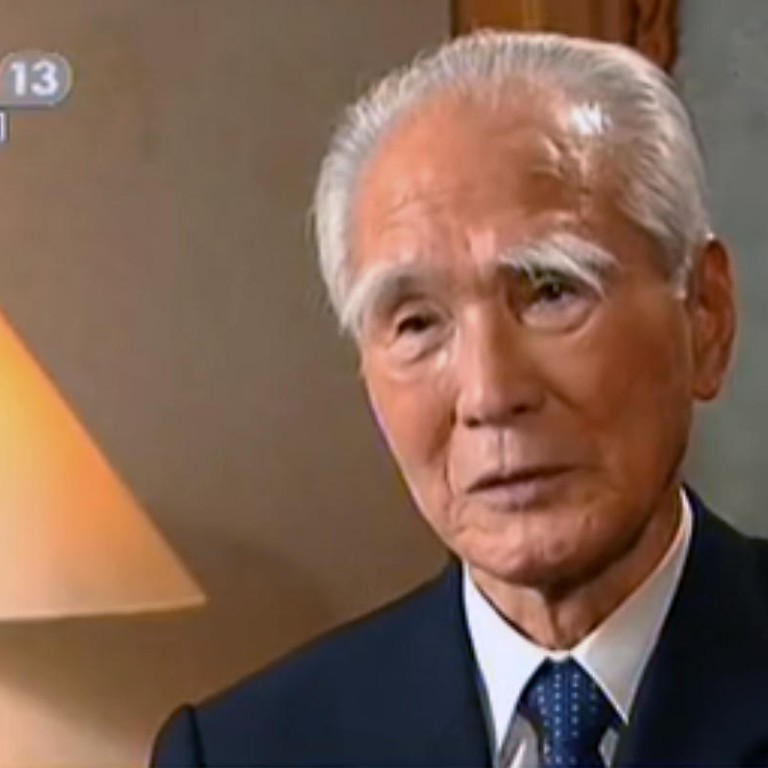
As tensions cool, Japan and China can work towards common ground
As tensions cool, nations can further unify over Korean issue and proposed bilateral summit
With tensions between China and Japan appearing to have subsided following recent high-profile visits by Japanese politicians, scholars from the two nations are calling on both sides to seek common ground and focus less on their territorial dispute in the East China Sea.
They said the lingering dispute over the Diaoyu Islands, known as the Senkakus in Japan, would not be resolved in the near future - but neither country wanted tensions to get out of control and they would resort to diplomatic efforts by former politicians to smooth things over.
Tensions between the two nations flared in September when the Japanese government announced it was purchasing three of the uninhabited islands, triggering massive anti-Japanese protests in mainland cities and severe disruption to bilateral exchanges, except for meetings among diplomats.
The scenario started to change two weeks ago, when former Japanese prime minister Yukio Hatoyama visited China.
Following Hatoyama's trip, Natsuo Yamaguchi, whose New Komeito party is part of Japan's ruling coalition, visited Beijing, bearing a letter from Prime Minister Shinzo Abe. Another former prime minister, Tomiichi Murayama, concluded his trip to China yesterday.
Murayama told China Central Television that it would be impossible for Abe to continue his tough approach towards Beijing.
"The majority of Japanese people do not want the situation to develop in the direction set by Abe," Murayama said. "It is impossible for Abe to continue with his wrong track."
Abe has called for a high-level bilateral summit and did not mention the territorial dispute in his first policy speech. But analysts said more should be done to extend the goodwill.
Professor Zhao Quansheng , director of the Centre for Asian Studies at American University in Washington, said there were two options for the two countries: to refrain from making a fuss over the dispute and refrain from entering the disputed area.
Lin Xiaoguang , an international relations specialist at the Central Party School, said even though both sides would continue exercising what they said were their territorial rights, the scale of such actions should be maintained at present levels.
Japan sent fighter jets to the area when a Chinese maritime surveillance aircraft was patrolling on January 10, prompting Beijing to send J-10 fighter jets to monitor the Japanese planes.
"Beijing would not initiate the use of fighter jets if Japan did not take the lead, and there wouldn't be fears of the possibility of armed confrontation," Lin said.
Professor Da Zhigang , from the Heilongjiang Academy of Social Sciences, said the two countries could seek common ground in regional security, especially on North Korea's nuclear programme.
"Both China and Japan do not want a chaotic Korean Peninsula," Da said. "Japan wants China and Russia to exert their influence on North Korea, and China does not want Japan to team up with the United States to exert pressure on Pyongyang."
In one sign that diplomatic ties could be on the upswing, Japanese authorities have said they will resume promotional campaigns targeting mainland tourists.
"The visit of Yamaguchi is satisfactory, and the communications between the two countries will help build a foundation for the high-level bilateral summit," said Norihiro Sasaki, a China observer at the Institute of Developing Economies in Japan.
Analysts said the three Japanese politicians were invited to visit China by the Beijing-backed China-Japan Friendship Association, indicating that Beijing was eager to ease tensions.
"The invitations indicated that Beijing does not want ties with Tokyo to keep deteriorating, and it has used renowned Japanese [figures] outside Abe's administration to do that," said Zhou Yongsheng , a Japanese affairs expert at the China Foreign Affairs University.
Beijing arranged the trips cautiously, however. The meeting between Yamaguchi and Communist Party chief Xi Jinping was only confirmed the night before the talks - reflecting Beijing's concerns over remarks by Japanese politicians rejecting Yamaguchi's proposal that the territorial dispute should be set aside.
"The future depends on whether Japan is leaning towards the right, and what's the take of the United States in the territorial dispute," Lin said.
But both Zhou and Lin said there would be limits to US support for Tokyo because John Kerry, who is succeeding Hillary Rodham Clinton as US secretary of state, is considered a moderate. Kerry has said he supports deeper ties with China and is not convinced that the US needs to ramp up its military presence in the Asia-Pacific region.

